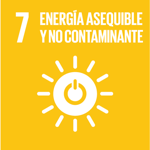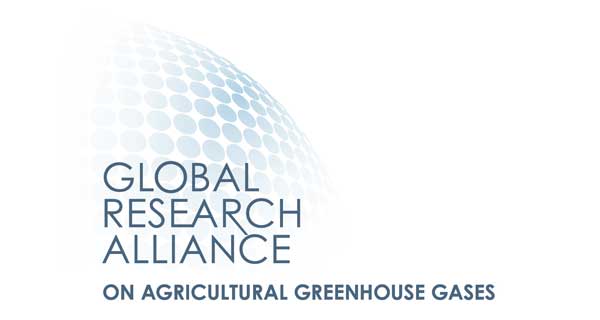CLIMATE CHANGE AND INDIGENOUS COMMUNITIES
 New Zeland
New Zeland
 Argentina
Argentina
 Chile
Chile
Executive Summary
This project focuses on promoting sustainability and food security in Mapuche indigenous communities in rural areas of Argentina and Chile. It seeks to improve livestock production through climate-smart practices, drawing on previous experience to propose solutions tailored to these communities.
In Argentina, it focuses on Río Negro and Neuquén provinces, addressing challenges such as water scarcity, poor livestock nutrition and limited access to local markets. In Chile, the initiative targets La Araucanía, a region facing similar challenges and climatic variations.
The project uses a climate-smart livestock approach that seeks to optimize resource use, increase resilience to climate change and reduce greenhouse gas emissions. Collaboration between research institutions and Mapuche communities is fundamental to the success of the project, emphasizing the co-creation of solutions and the active inclusion of communities in planning and implementation.
The aim is to expand the innovations through demonstration plots and participatory transfer activities to achieve wider uptake in rural communities. The project aims not only to increase livestock productivity, but also to preserve Mapuche culture by integrating their ancestral vision into the proposed solutions. With a focus on sustainable development and climate change adaptation, this project supports vulnerable communities on their path to resilience and prosperity.
The technological solution
The proposed technological solution focuses on a series of practices and technologies for improving the sustainability and productivity of livestock farming in Mapuche communities. These solutions are implemented through a participatory approach and are designed to be applied in the Innovation Units (IU) selected in each community.
The selected practices and technologies address several key aspects:
Increased Productivity: this includes fattening, strategic supplementation, weaning, use of electric fences and sheds, predation control, and selection of better adapted individuals. Community production of adapted forage and assessment of animal welfare are also considered.
Pasture and Forage Management: Includes adjustments in stocking rates, rotational grazing, nutrient recirculation, and use of natural fertilizers. The aim is to improve the quality of the pasture and optimize its use.
Water management: It contemplates solutions such as water storage, tanks with movable lids, cultivation of adapted forage crops, and water troughs in the pastures to deal with water shortages.
Manure Management: Includes composting practices, reuse of manure for soil improvement, and its use in construction and as fuel.
Greenhouse Irrigation Automation: Integration of automated irrigation systems, incorporating soil moisture sensors and intelligent programming to maximize water use efficiency and enhance water resource management.
Natural Pasture Restoration: Use of native forage species for the recovery of degraded natural pastures.
Use of Non-Conventional Foods: Evaluation of regional non-conventional foods for animal feed, ensuring their safety and nutritional value. These technologies and practices are selected and applied in collaboration with the Mapuche communities, combining local and scientific-technological knowledge. The objective is to achieve an increase in livestock productivity and a reduction in the intensity of greenhouse gas emissions, creating a more sustainable livestock system adapted to climate challenges.
Results
The expected results of the project are:
The creation and characterization of at least 15 Innovation Units (IUs) defined and selected in a participatory manner across five Mapuche communities.
The implementation of a set of climate-adapted livestock practices, specific to each of these innovation units (IUs), carried out in consensus with the communities involved.
The implementation and evaluation of at least two climate-smart livestock practices in each IU to improve productivity and natural resource management.
The measurement and quantification of the reduction of greenhouse gas emissions intensity as a result of the implementation of these practices in the IUs.
Dissemination of the knowledge and practices developed through informative materials and extension and knowledge exchange workshops.
The strengthening of an inclusive and open innovation ecosystem through the formation of a transdisciplinary team and the realization of exchanges and internships between communities and technical teams.
These results are designed to achieve the overall objective of the project, which is to promote sustainability and food security in Mapuche indigenous communities through the adoption of livestock practices that are resilient to climate change.
Beneficiaries
The direct beneficiaries of this project are the Mapuche communities located in the Argentine provinces of Río Negro and Neuquén, and in the Chilean region of La Araucanía. These communities, faced with challenges such as water scarcity, poor livestock nutrition and limited access to local markets, will benefit directly from the increased efficiency and sustainability of livestock production. In addition, the project seeks not only to tangibly improve livestock production, but also to strengthen local capacities and preserve the rich Mapuche culture. The integration of their ancestral wisdom into the proposed solutions enriches the project, ensuring more relevant and lasting results for the communities involved.
Indirect beneficiaries include research institutions such as INTA in Argentina and INIA in Chile, which will gain valuable knowledge and experience transferable to similar contexts. This project also promises to positively impact agricultural policies and practices at the regional and national levels, promoting more sustainable and environmentally friendly agriculture, thus benefiting other local, national and regional producers with similar challenges.
Finally, the project contributes to society at large by reducing greenhouse gas emissions and strengthening resilience to climate change, paving the way for a more sustainable future for all. The collaboration between indigenous communities and research institutions stands out as a model to follow in the fight against climate change and the promotion of sustainable development, highlighting the importance of local knowledge and experience in these efforts.
Sustainable Development Goals










Participating Organizations
Executor
- Instituto Nacional de Tecnología Agropecuaria (INTA) - Argentina
- Fundación ArgenINTA (ARGENINTA) - Argentina
Co-executor
- Instituto de Investigaciones Agropecuarias (INIA) - Chile
Associated
- Consejo Nacional de Investigaciones Científicas y Técnicas (CONICET) - Argentina
Donors
- Global Research Alliance (GRA) - Nueva Zelanda





